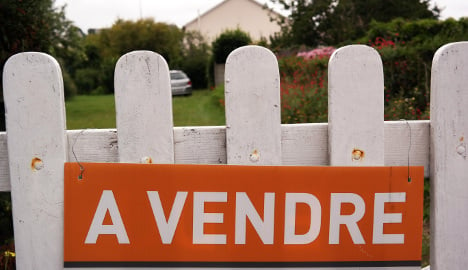
(Richards, centre, plans to enjoy the summer cycling and the winter slopes. Photo: Private)

With the double whammy of low interest rates and favourable exchange rates, a property expert tells The Local that there's never been a better time for foreigners to buy their dream home in France. The Local speaks to a family who is set to do exactly that.



Member comments